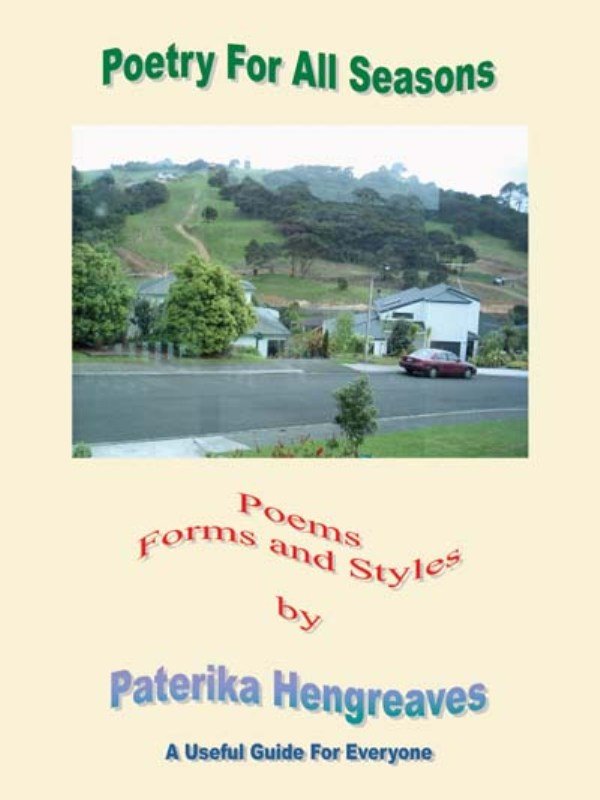Weaving Words that’s Poetry
Faux Pas
Catullus 101
Multas per gentes et multa per aequora vectus
Carried through many nations and over many seas
advenio has miseras, frater, ad inferias,
I arrived, brother, for these wretched funeral rites
ut te postremo donarem munere mortis
So that I might present you with the last tribute of death
et mutam nequiquam alloquerer cinerem.
and speak in vain to silent ash,
Quandoquidem fortuna mihi tete abstulit ipsum.
Since fortune has carried away from me you in the flesh
Heu miser indigne frater adempte mihi,
Atlas, poor brother, unfairly taken away from me,
nunc tamen interea haec, prisco quae more parentum
now in the meantime, nevertheless, these things which in the ancient custom of ancestors
tradita sunt tristi munere ad inferias,
are handed over as a sad tribute to the rites
accipe fraterno multum manantia fletu,
receive, dripping much with brotherly weeping.
atque in perpetuum, frater, ave atque vale.
And forever, brother, hail and farewell.
Adonais written by Percy Bysshe Shelley (1792-1822)
Sunday, December 18, 2016
Speaking my thoughts with you (Paterika Hengreaves)
Weaving Words that’s Poetry
SINGING FRANCINE ~ Go Brave
Knitting Lessons

Bridgetown
A Must Read for Poetrynest Fans
Viewing Statistics
Edifying Poetry
My Videos
Bajan Voicing latin Vowels
Bajan Voicing Classical Latin Alphabet
Bajan Voicing Short Vowels in Classical Latin
Bajan Voicing Long Vowel Sounds in Latin Words
Bajan Voicing Latin Diphthongs
My Favourite Books
- The Bible
- Shakespearean Works
- Novels: detective/romance/science fiction
- Fables of Aesop
- Classical Books
- Books on Poetry (traditional and modern)
Read Poetry, News and a Whole Lot More as the World Spins
My Pet Animals
Ash and Ginger

Ash (in foreground) died from old age
Ginger

Thames

Newt

Latest pet arrival
Founder of the Barbados Labour Part (BLP) Sir Grantley Adams

Died November 28, 1971 at the age of 73
Founder of the Democratic Labour Party (DLP), Sir Errol Walton Barrow

Died June 1987 at the age of 67
-
*
In plenty and in time of need
When this fair land was young
Our brave forefathers sowed the seed
From which our pride was sprung
A pride that makes no wanton boast
Of what it has withstood
That binds our hearts from coast to coast
The pride of nationhood
Chorus:
We loyal sons and daughters all
Do hereby make it known
These fields and hills beyond recall
Are now our very own
We write our names on history's page
With expectations great
Strict guardians of our heritage
Firm craftsmen of our fate
The Lord has been the people's guide
For past three hundred years.
With Him still on the people's side
We have no doubts or fears.
Upward and onward we shall go,
Inspired, exulting, free,
And greater will our nation grow
In strength and unity.
Chorus
We loyal sons and daughters all
Do hereby make it known
These fields and hills beyond recall
Are now our very own
We write our names on history's page
With expectations great
Strict guardians of our heritage
Firm craftsmen of our fate
The tree that gave Barbados its name
Independent Barbados Shelved Guy Fawkes Night
Halloween Poetry - Pirates of the Caribbean
Poems for September 11
Flashbacks
(Diastic Reading Through Procedures)
Heroes
(Reversed Telestich)
No Friendly Sky Anymore
(in Diastic)
No Friendly Sky Anymore
(in Free Verse)
Nine Eleven's Broken Promise
(Iambic Tetrameter abab)
Ode to Sweet Revenge - Ground Zero Never
(in Irregular Ode)
POEMS WITH NEW ZEALAND THEMES
Midsummer's Day Exquisiteness
Sample Didactic Poems
information as well as pleasurable reading. It can assume
the mode and features of imaginative works by infusing knowledge in a variety of forms such as dramatic poetry, satire, parody, among others. There is the popular view that allegory, aphorisms, apologues, fables, gnomes and proverbs are specific types of Didactic Poetry because of their close affinity.
Click to Read
Hurricane Preparedness Watch
If Words
Rhyming For So
Too Sweet
British Royalty Poems
.
Barbados' National Festival of Culture July 1 to August 1
To all the people in New Zealand
Kia ora
Robb Kloss - Musing from Aoteaora
Marja Blom - Dutchcorner
Bob McKerrow - Wayfarer
Pete Mcgregor - pohanginapete
Send me a shout that you are okay.
Map of Quaking Earth

(For the period: January 2010 - March 7, 2010) We cannot stop earthquakes but we can reduced the death rate.
New World Earthquakes for 2010 (Haiti) (Chile)
The Quaking Earth
Chile Under Rubble from 8.8 Earthquake (February 27, 2010)
Natural disasters whenever and wherever they occur impact our lives. My thoughts and prayers are with the people of Haiti and Chile and elsewhere battling with the uglyness of disasters.
Search This Blog
National Anthems of New Zealand
Māori Version
E Ihowā Atua,
O ngā iwi mātou rā
Āta whakarangona;
Me aroha noa
Kia hua ko te pai;
Kia tau tō atawhai;
Manaakitia mai
Aotearoa
Ōna mano tāngata
Kiri whero, kiri mā,
Iwi Māori, Pākehā,
Rūpeke katoa,
Nei ka tono ko ngā hē
Māu e whakaahu kē,
Kia ora mārire
Aotearoa
Tōna mana kia tū!
Tōna kaha kia ū;
Tōna rongo hei pakū
Ki te ao katoa
Aua rawa ngā whawhai
Ngā tutū e tata mai;
Kia tupu nui ai
Aotearoa
Waiho tona takiwā
Ko te ao mārama;
Kia whiti tōna rā
Taiāwhio noa.
Ko te hae me te ngangau
Meinga kia kore kau;
Waiho i te rongo mau
Aotearoa
Tōna pai me toitū
Tika rawa, pono pū;
Tōna noho, tāna tū;
Iwi nō Ihowā.
Kaua mōna whakamā;
Kia hau te ingoa;
Kia tū hei tauira;
Aotearoa
English Version
God of Nations at Thy feet,
In the bonds of love we meet,
Hear our voices, we entreat,
God defend our free land.
Guard Pacific's triple star
From the shafts of strife and war,
Make her praises heard afar,
God defend New Zealand.
Men of every creed and race,
Gather here before Thy face,
Asking Thee to bless this place,
God defend our free land.
From dissension, envy, hate,
And corruption guard our state,
Make our country good and great,
God defend New Zealand.
Peace, not war, shall be our boast,
But, should foes assail our coast,
Make us then a mighty host,
God defend our free land.
Lord of battles in Thy might,
Put our enemies to flight,
Let our cause be just and right,
God defend New Zealand.
Let our love for Thee increase,
May Thy blessings never cease,
Give us plenty, give us peace,
God defend our free land.
From dishonour and from shame,
Guard our country's spotless name,
Crown her with immortal fame,
God defend New Zealand.
May our mountains ever be
Freedom's ramparts on the sea,
Make us faithful unto Thee,
God defend our free land.
Guide her in the nations' van,
Preaching love and truth to man,
Working out Thy glorious plan,
God defend New Zealand.
Anthem 2
God Save the Queen
God save our gracious Queen,
Long live our noble Queen,
God save The Queen.
Send her victorious,
Happy and glorious,
Long to reign over us:
God save The Queen.
O Lord our God, arise,
Scatter our enemies,
And make them fall;
Confound their politics,
Frustrate their knavish tricks;
On thee our hopes we fix:
God save us all.
Thy choicest gifts in store
On her be pleased to pour,
Long may she reign.
May she defend our laws,
And ever give us cause
To sing with heart and voice,
God save The Queen.
Note: The second verse of 'God Save The Queen' is commonly omitted.
Today's Featured Poem in Blank Form
Guests Poets' Poems
.
Centre Piece

Yellow Candles
Ohio Sunrise July 6, 2007





No comments:
Post a Comment